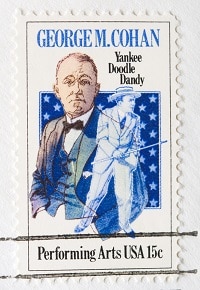
Business Advisory Services
Everything you need to help you launch your new business entity from business entity selection to multiple-entity business structures.
Table Of Contents

Posted Saturday, September 28, 2024
Let’s briefly discuss record keeping, and then jump into a famous New York entertainer named Cohan who ultimately provided a nifty rule that can be used during an IRS audit. To be able to demonstrate a business or rental property deduction you need to show the date, the amount and the person or business you paid. A bank or credit card statement, or canceled check, satisfies this. The second element is the business purpose must be documented either through a logbook, planner or accounting software. Proof of payment plus business purpose equals tax deduction.
Do you need receipts? Yes and no. For travel, gifts and meals, if the amount is under $75 then you only need to document the event and business purpose in a logbook or planner. However, if you spend $10 at Costco for some paper, then you need proof of payment plus business purpose documentation. Seems a bit onerous and even contradictory, but it is true.
Enter Cohan vs. Commissioner, 39 F. 2d 540 (2d Cir. 1930). Yes, 1930 and we still use it today. George Cohan gave us “Yankee Doodle Dandy” and “Give My Regards to Broadway”, and he also gave us a tax deduction rule. His rule is simple- you can approximate your expenses and ultimately your business or rental property tax deduction. What?! No, it is not that simple.
You must have corroborating evidence that demonstrates your expense. For example, as a public accounting firm, WCG CPAs & Advisors can demonstrate that we prepare so many tax returns which are so many pages in length, and therefore we can approximate our paper costs. Treasury Regulations 1.274-5T(c)(3) also gives latitude to the IRS to allow substantiation of a business expense by other means. Here is the blurb-
(3) Substantiation by other sufficient evidence—(i) In general. If a taxpayer fails to establish to the satisfaction of the district director that he has substantially complied with the “adequate records” requirements of paragraph (c)(2) of this section with respect to an element of an expenditure or use, then, except as otherwise provided in this paragraph, the taxpayer must establish such element-
(A) By his own statement, whether written or oral, containing specific information in detail as to such element; and
(B) By other corrobative evidence sufficient to establish such element.
The good news is that we’ve been paperless for a while, so we don’t have to worry about estimating our paper costs. One less thing to worry about like Forrest Gump and money.
We have successfully used the Cohan rule in IRS examinations. We have also implemented it during tax preparation when records are incomplete or missing (i.e., one hot mess). Having said that, using estimates and approximations looks bad. Keep good records, please. Do not rely on the Cohan rule or some treasury regulation to save your butt.
The Cohan rule or any type of estimation cannot be used for travel, business gifts and meals. All the good stuff needs strict record keeping habits. IRC Section 274(d) also states that listed property must be substantiated with proper documentation. Listed property includes automobiles, and equipment generally used in entertainment such as cameras and stereo equipment. Seems a bit outdated, but there you go. So, if you are a photographer who drives a car for business while entertaining guests, you will be a master at recordkeeping.
A logbook or planner is very influential during an audit. When a client can show contemporaneous records in a planner that coincides with travel, meals and home office use, the audit lasts about 90 minutes as opposed to four hours with a deficiency notice at the end. Contemporaneous comes from Latin, and means existing or happening during the same period. In other words, as things happen in your world, write them down in a logbook or planner.
